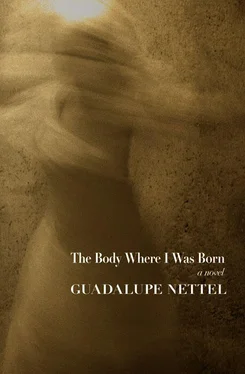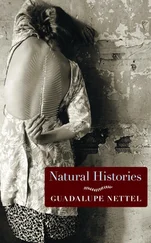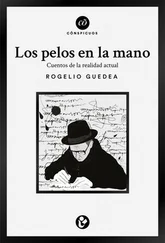At this new school, there were kids from many different countries, mostly African. I remember Kathy, a dark-skinned girl with a stunning smile and robust breasts who came from the island of Reunión. There were many Moroccans, a few Asians, and also some Indians. The best student in my class, whose name I have forgotten, was from Rajasthan. She scored the highest grades, even a few 20/20s, which are nearly impossible to get in the French system. One day, in which she had been awarded one of these marks of genius on a particularly difficult physics exam, I asked her if she knew what she wanted to do when she grew up. She answered without thinking twice:
“I’ve already figured that out. I’m going to be an assistant pedicurist, like my aunt.”
She was an ingenuous girl, discreet and quiet, who spent her free time studying, but I still had a hard time believing that she wasn’t pulling my leg with that response. Later, she explained to me that her aunt was the only woman in the family who worked and that, unlike every other occupation, dedicating oneself to the beauty of other women was not looked down upon in her clan. A few months later, there was a school program for us to get some work experience in the profession of our choice, and this girl — whom for her academic record alone NASA or Aerospace would have taken had she applied — opted to work in a salon just as she had said she would. There was more to these real-life work experiences than a desire to learn. Many of the kids who studied at my school were advised to quit at the end of the term in order to apprentice at a trade. I guess the teachers were terrified of the possibility they’d never finish their education and instead jump with both feet into the criminal activities some of them were already dipping their toes into. There was a lot of frustration in the atmosphere at that school, and it would escalate into verbal and physical violence as soon as backs were turned. The cafeteria was the favored place for those attacks. They sat us down at random — giving no consideration to similarities of personality, race, or age among us — around a long table that no one seemed to be keeping an eye on and that almost always ended up under the rule of some Mafioso-type boy. For the entire year, my table was under the rule of a young Italian with sky-blue eyes, Cello, whose last name was pronounced “Sheh-lo,” and who amused himself by tormenting the youngest and least clever among us. He was always claiming my dessert or the pieces of cheese that were meant for me. He fired breadcrumb pellets into our glasses of water. But the most insufferable joke this hooligan-in-training played on me didn’t take place in the cafeteria; it happened outside at recess, and its consequences were far more devastating. I’ll talk about that in a little while. To survive in this climate, I had to adapt my vocabulary to the argot — a mix of Arabic and Southern French — that was spoken around me, and my mannerisms to those of the lords of the cantine . When you’re twelve, time still moves slowly. Even though I came from a well-off and educated family, after I lived with poor immigrants for a few years, then became a poor immigrant myself, I ultimately identified with this new condition and its environment.
Every year, the mobile homes of the Roma would settle for a few months behind my new school. One afternoon, my brother had to walk home because of a transportation strike and he ran into a couple of Roma boys. Based on the description he gave when he got home, they must have been about twelve, while he had just turned nine. He told us that, seeing him, one went in front and the other behind to intimidate him. Then they told him to take off the watch and the jacket he was wearing and to hand them over. My brother called on the solidarity between foreigners; he told them he wasn’t French and that he had come from Mexico with his mother and sister in search of a better life, just like them.
“And your father?” one of the boys asked.
“He had to stay in Mexico,” my brother responded. “We didn’t have enough money for him to come too.”
The most incredible part of the story wasn’t that they believed him, but that they gave him back his things, amicably and with a handshake. There are rules among the marginalized.
At school there was also a group of French students who stood out among all the other “ethnic fauna,” as the headmaster often called us. This group was made up of some twenty students who lived in the rural areas surrounding Aix, most of them in residential neighborhoods, and who clearly belonged to another economic class. These kids — from Ventabren, Éguilles, and similar towns — rode to school in fancy buses, wore brand name clothing, and, most importantly, kept to themselves.
Even though we’d been in France for over a year, Mexico remained omnipresent in our lives. Unlike other immigrant families, we kept speaking Spanish at home, unless my mother’s boyfriend was there, and sometimes even then. It’s not that we were always thinking about the life we had left behind, or that we were comparing Mexico City to Aix — we almost never did. Rather, from time to time, our country would have a huge breakthrough role as a main character on the international scene. One day, when we came home from school, we found our mother glued to the TV with a stunned expression I’d rarely seen on her face. The news bulletin showed images of the Mexican capital turned into a pile of rubble. Entire buildings had collapsed. According to the reporter, several factories, some luxury hotels, and one of the most important hospitals in the country had been destroyed. The public ambulances and Red Cross were not enough to help the great amount of people buried alive beneath the devastation. I thought of my father first, then of my grandmother, and for the first time in a year and a half I didn’t feel an ounce of resentment. I thought of my aunts and uncles, and of the friends at school I had left behind. I also thought of Iris, my beloved teacher, and I imagined her trying to flee the school building followed by a string of kids. We tried many times to call our family to find out if they were still alive but it was useless, the phones weren’t working. There was no way to speak to anybody there; the entire city was cut off. I realized my mother was making an immeasurable effort to remain calm and all it did was scare me more. I couldn’t keep myself from imagining everyone I knew sepulchered beneath the remains of our capital. The past may have been utterly extinguished by little more than two minutes of terrestrial oscillation. And at the same time, there was something unreal in all of it: in our living room the sun came in through the high windows like it did every fall afternoon; the fountain remained on, filling the place with its bucolic sound; and outside you could hear the laughter of happy, carefree children. My brother chose to forget all about it and went to play in the hallway with his foam ball. Meanwhile, my mother spun the telephone dial again and again. The consulate provided an information line, and even though it was impossible to discover each relative’s fate, the line was able to roughly tell us which streets had been affected and which had not. Of course, the line was always busy. When at last she got through, the question my mother asked totally baffled me:
“Can you tell me, miss,” she said with anguished urgency, “if there were any deaths at North Prison?”
After that, she asked about the streets her family lived on.
When she put down the receiver, she seemed lighter by several tons.
“You don’t have to worry,” she said, “your father is alive.”
Even though I’d never heard of North Prison, I didn’t need to think about it long to know it had to be a jail. Twenty-eight months of silence and ignorance were illuminated by a single phrase. That’s how the earthquake also took down my last remnants of naivety and innocence. I spent the next few days digesting the news that neither devastated nor infuriated me, as one might expect, but which did drastically upset the worldview I had created for myself until then. My mind took its time to erase my father from the San Diego map and to put him back on the ground in the capital of Mexico, where he had been judged and ultimately detained. During these days of adjustment I spoke very little. When I did, it was to ask Mom about some detail I was trying to understand. It didn’t really matter to me what Dad had done or what he used to do so much as how his health was or how he was feeling. Above all I wanted to know the day he would be released, which we all assumed to be imminent.
Читать дальше












